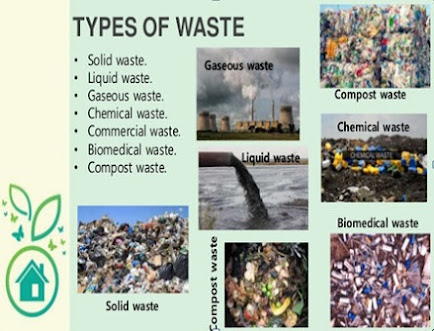SOIL: Component definition: Mixture of mineral matter, organic matter, water, and air.
What is Soil Pollution?
The deposition of waste materials (solid and liquid) on land or underground in a way that can contaminate the soil or groundwater and can affect human health and cause nuisance is known as soil pollution.
Types of Soil Pollutants:
Soil Pollutants can be categorized into
two
groups.
1) Organic Pollutants
2) Inorganic Pollutants
1) Organic Pollutants:
These pollutants are organic and include industrial organics and pesticides.
Industrial organics: These pollutants
cause land pollution by accidents. Industrial organics include petroleum
products (e.g. benzenes and Polycyclic aromatic hydrocarbons PAHs), military
explosives (Trinitrotoluene TNT), and solvents used in the manufacturing
processes.
Pesticides: Pesticides are organic
chemicals used to control or kill pests of crops.
Pests: A
destructive insect, plant, or other animals that attack crops.
Pesticides include:
Insecticides: Used to kill insects
Fungicides: Used to kill fungi
Herbicides: Used to kill weeds
Nematicides: Used to kill
nematodes
Rodenticides: Used to kill rodents
In agricultural land insecticides,
fungicides and herbicides are used in the largest quantities. All types of
pesticides find their way into the soil system and causing soil pollution.
2) Inorganic Pollutants:
These pollutants have inorganic nature
and include heavy metals.
Heavy metals include cadmium, chromium,
copper, lead, mercury, nickel, selenium, arsenic, etc. These metals reach the
soil system, enter the food chain and cause human health effects.
Soil > Plants > Animals > Humans







No comments:
Post a Comment